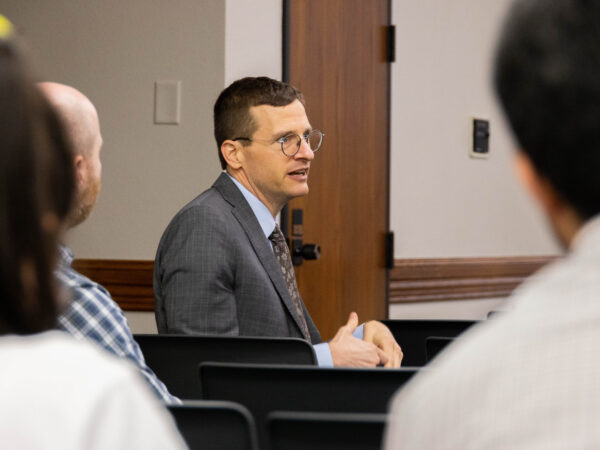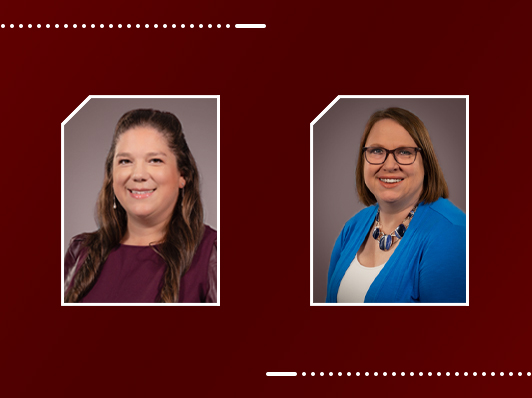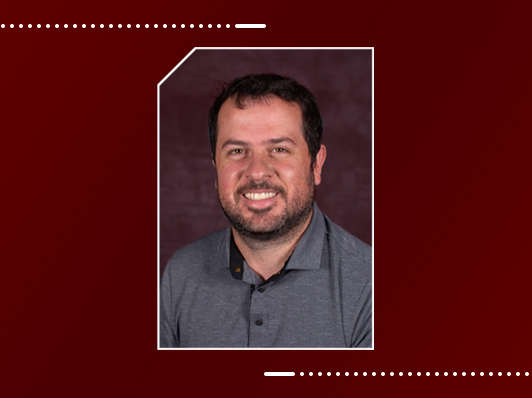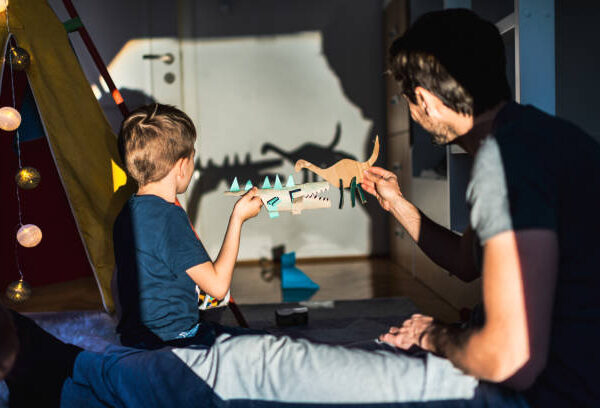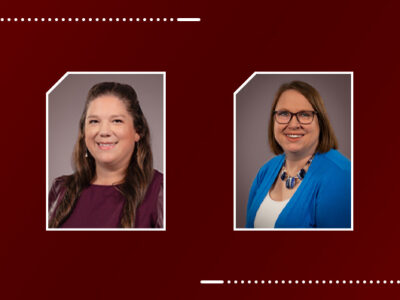ChallengeWorks Helps Build Open-Minded Leaders
ChallengeWorks is helping to build open-minded leaders of the future with its challenge course activities and guided reflection.
A program affiliated with the Department of Health and Kinesiology in the College of Education and Human Development, ChallengeWorks consists of several programs designed to build teamwork, community, camaraderie, leadership and communication skills. Each program uses the framework of the experiential learning process, which is the process of learning through reflection.
“Everything we do has that learning component,” said Bob Gantt, program coordinator for ChallengeWorks. “Let’s talk about it, what are we getting from it, how is it going to help us immediately and then how is it going to help us outside of here.”
Each group that participates in ChallengeWorks has a customized program for that day. For example, if the goal is to work on leadership and communication skills, facilitators build activities to focus on what a leader looks like and what good communications skills look like.
“We really find that people learn more about each other and about teamwork in a four hour timeframe out on the challenge course than they would have learned in months going to ice cream socials or meeting at the bar,” said Gantt.
Dottiedee Agnor, coordinator of the physical education activity program, takes her freshman learning community to the ChallengeWorks course each semester. She says, while it is out of most students’ comfort zone, they call it an overall positive experience. “It’s such good teambuilding. They start bonding together, learning about each other and learning to accept each other and realizing that everyone comes from a different place.”
Dr. Shane Hudson, professor of sport management, admits he was skeptical the first time he took the students in his learning community to ChallengeWorks. After seeing the success of the first visit, he now makes the course mandatory each semester. “Every year it’s just the magic trick that gets them together, gets them communicating and gets them trusting each other,” said Dr. Hudson. “It gets them to open up. The classroom is a very protected environment. No matter what anyone says, everyone is scared to ask the dumb question and there’s some posturing. Out there, they sort of forget it.”
The course is also used to give students the ability to apply theories they are learning in class to real- world scenarios. Dr. Robert Woodward teaches the Creativity Theories and Research class and takes his students to the ChallengeWorks course.
“One of the things the ChallengeWorks course offers is an ill-defined problem to where there’s no one right way to solve a given task,” said Dr. Woodward. “Within those parameters, our students are then directed to use either a certain theory or certain steps and sequences to guide their responses.”
“We can talk all about creative problem solving and moving from convergent to divergent thinking, but until they actually practice it instead of writing about it and learning about it. It’s a whole different kind of paradigm,” said Dr. Woodward.
About the Writer
Ashley is the Media Relations Coordinator and responsible for news coverage in the Department of Teaching, Learning and Culture as well as the Department of Educational Psychology.
Articles by AshleyFor media inquiries, contact Ashley Green.
Fundraising
To learn more about how you can assist in fundraising, contact Amy Hurley, Director of Development ahurley@txamfoundation.com or 979-847-9455



